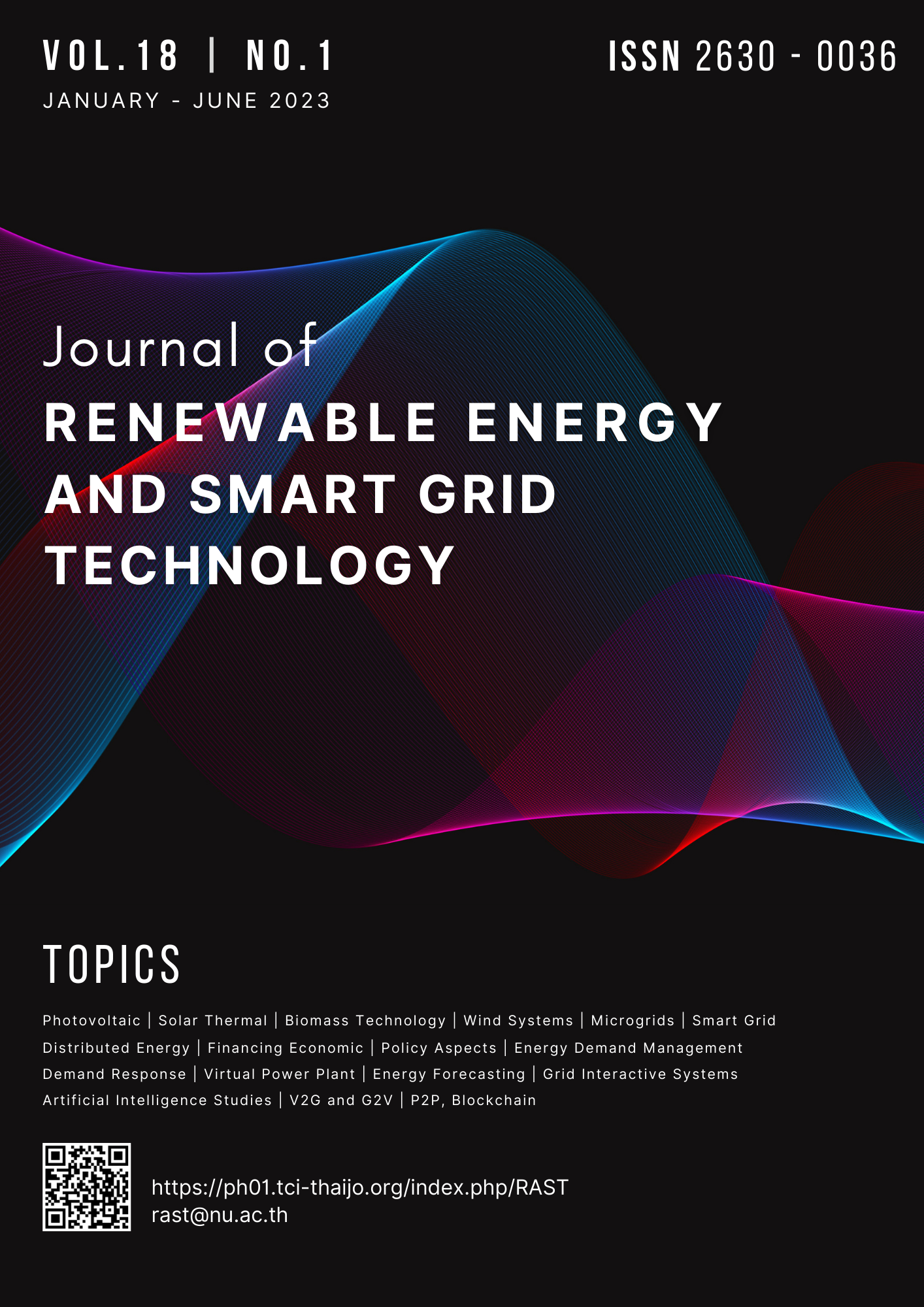Correlations between energy, water, and waste consumption of residential buildings for community demand understanding and management of Smart Village
Keywords:
Community Smart Village, energy-water-waste correlations, behavioral demandAbstract
This research study aims to investigate the Correlations between energy and water consumption data in residential buildings and waste generation. The objective is to gain valuable insights that can contribute to sustainable community demand management practices. Data analysis was conducted on a selection of six residential buildings to identify patterns in energy and water usage, as well as waste generation, and to explore the correlations between these three variables. The findings indicate that buildings of the same type exhibit similarities in energy and water consumption patterns, as well as waste generation. However, variations exist due to individual building demands, user behavior, and occupant characteristics. The analysis further reveals a strong correlation between energy and water usage, while the association between waste generation and energy or water consumption shows less consistency. It was observed that activities requiring long-duration energy consumption have a positive correlation with waste generation, whereas the relationship between shorter activities and waste generation exhibits variability. Additionally, the analysis of the data reveals significant correlations between some activities and energy, water, and waste, while others do not show such correlations. This research provides valuable insights into the interrelationships among energy and water consumption data in residential buildings and waste generation, enabling individuals to make informed decisions aimed at reducing their environmental impact and promoting sustainability. Moreover, the findings contribute to the development of sustainable community demand management practices that address the challenges associated with urbanization and population growth.
References
Karlijn, L. & van den Broek. (2019). Household energy literacy: A critical review and a conceptual typology. Energy Research and Social Science, 57, 101256.
Brounen, D., Kok, N., & Quigley, J. M. (2013). Energy literacy, awareness, and conservation behavior of residential households. Energy Economics, 38, 42–50.
Fang, D., & Chen, B. (2016). Water-energy Control Correlations in Socio-economic System. Energy Procedia, 88, 285–289.
Wang, S., & Chen, B. (2016). Energy–water nexus of urban agglomeration based on multiregional input–output tables and ecological network analysis: A case study of the Beijing–Tianjin–Hebei region. Applied Energy, 178, 773–783.
Chen, S., & Chen, B. (2016). Urban energy–water nexus: A network perspective. Applied Energy, 184, 905–914.
Bartos, M. D., & Chester, M. V. (2014). The Conservation Nexus: Valuing Interdependent Water and Energy Savings in Arizona. Environmental Science & Technology, 48(4), 2139–2149.
Eon, C., Liu, X., Morrison, G. M., & Byrne, J. (2018). Influencing energy and water use within a home system of practice. Energy and Buildings, 158, 848–860.
Morone, P., Falcone, P. M., Imbert E., & Morone, A. (2018). Does food sharing lead to food waste reduction? An experimental analysis to assess challenges and opportunities of a new consumption model. Journal of Cleaner Production, 185, 749–760.
Pace, S. A., Yazdani, R., Kendall, A., Simmons, C. W., & VanderGheynst, J. S. (2018). Impact of organic waste composition on life cycle energy production, global warming and Water use for treatment by anaerobic digestion followed by composting. Resources, Conservation and Recycling, 137,126–135.
Macintosh, C., Astals, S., Sembera, C., Ertl, A., Drewes, J.E., Jensen, P.D., & Koch, K. (2019). Successful strategies for increasing energy self-sufficiency at Grüneck wastewater treatment plant in Germany by food waste co-digestion and improved aeration. Applied Energy, 242, 797–808.
PEARSON, K,, & F.R.S. NOTES ON THE HISTORY OF CORRELATION. (1920). Biometrika, 13(1), 25–45.
Bolboacă, S.-D., & Jäntschi, L. (2006). Pearson versus Spearman, Kendall’s Tau Correlation Analysis on Structure-Activity Correlationss of Biologic Active Compounds. Leonardo Journal of Sciences, 9, 179-200.
Thapar, S. (2020). Energy consumption behavior: A data-based analysis of urban Indian households. Energy Policy, 143, 111571.
Tran, L. N., Gao, W., Novianto, D., Ushifusa, Y., & Fukuda, H. (2021). Relationships between household characteristics and electricity end-use in Japanese residential apartments. Sustainable Cities and Society, 64, 102534.
Bello, H. (2018). Impact of Changing Lifestyle on Municipal Solid Waste Generation in Residential Areas: Case Study of Qatar. International Journal of Waste Resources, 8(2), 1000335.

Downloads
Published
How to Cite
Issue
Section
License
Copyright (c) 2023 School of Renewable Energy and Smart Grid Technology (SGtech)

This work is licensed under a Creative Commons Attribution-NonCommercial-NoDerivatives 4.0 International License.
All copyrights of the above manuscript, including rights to publish in any media, are transferred to the SGtech.
The authors retain the following rights;
1. All proprietary rights other than copyright.
2. Re-use of all or part of the above manuscript in their work.
3. Reproduction of the above manuscript for author’s personal use or for company/institution use provided that
(a) prior permission of SGtech is obtained,
(b) the source and SGtech copyright notice are indicated, and
(c) the copies are not offered for sale.









